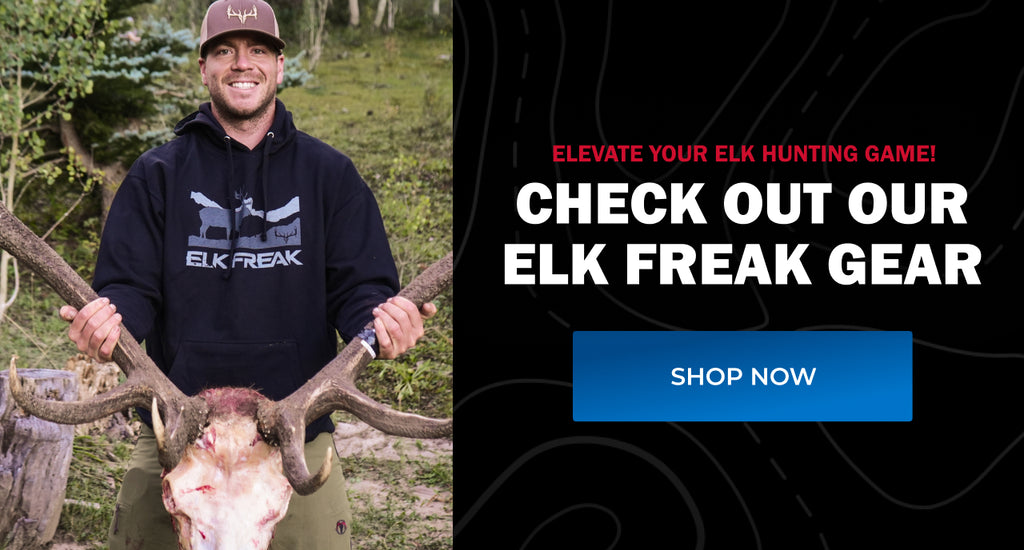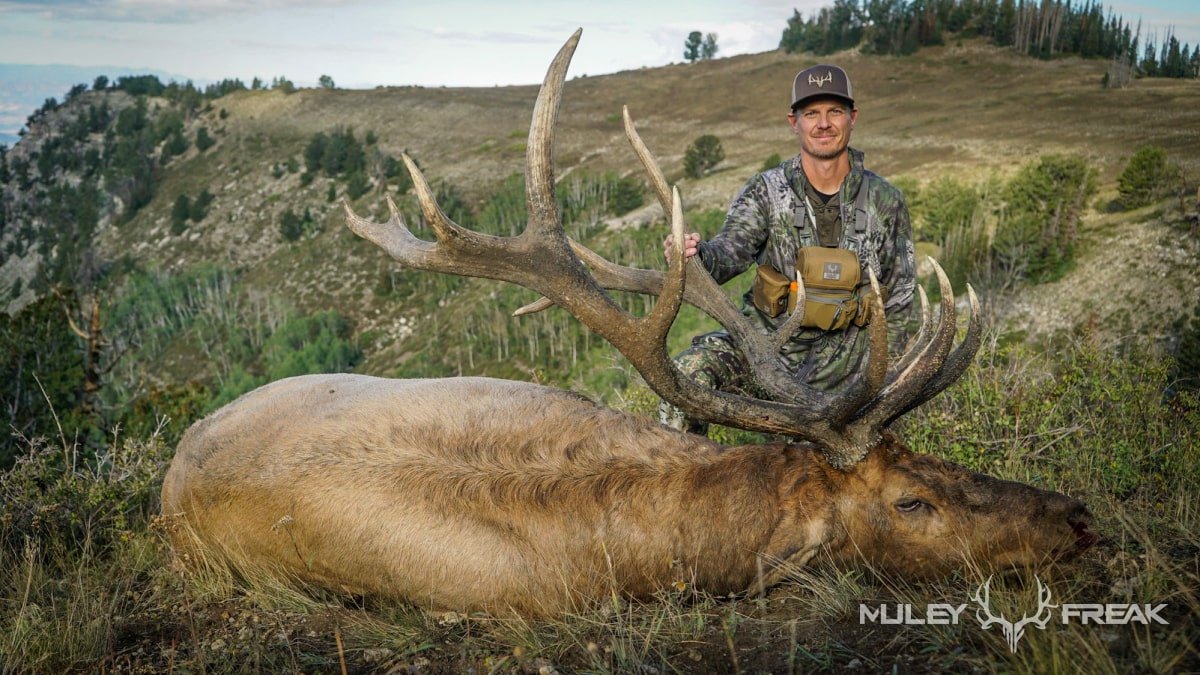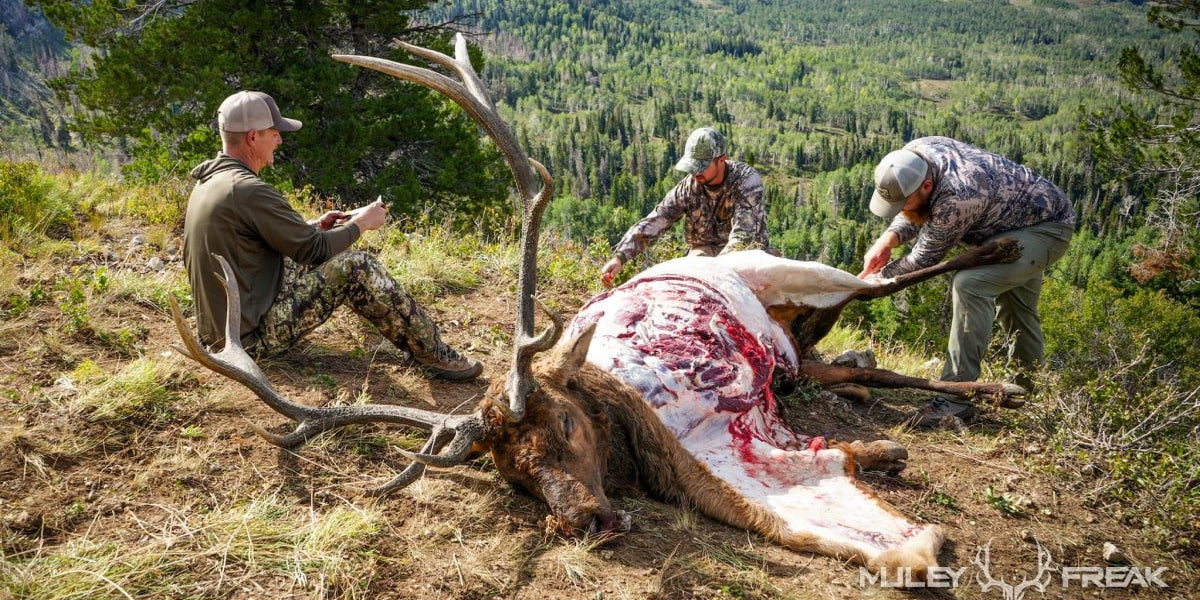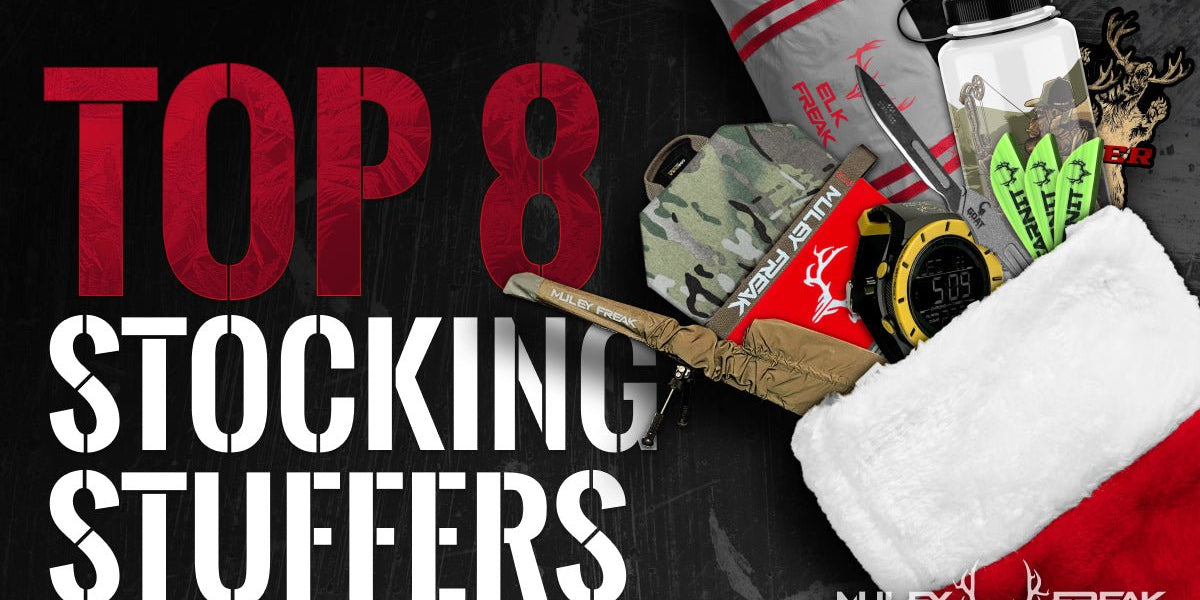The Hunt
Written By Clint Wirick
I didn’t grow up hunting elk. As a family we did hunt a few other species, fish some, and camp whenever possible. I say whenever possible because both my parents worked and my dad worked two jobs most of my childhood. My dad and uncle (who I also consider a mentor) didn’t hunt elk so I never really saw elk in Utah as a kid. I barely believed they existed, kinda like a Utah unicorn in my mind. The first time I hunted elk I was out in the world on my own, at 22 or 23 years old - some 20 years ago now. In college, I ended up in class with someone from high school who I never really hung out with then, but we quickly became good friends. He took me out on my first few elk hunts and introduced me to the process of putting in for limited entry elk tags in Utah. Back when I started in the ‘olden’ days, it was by paper application to apply for hunts. Now almost 20 years later, it was my turn at a limited entry elk hunt.

Application Strategy
My application strategy wasn’t much of a strategy really. I just kept on putting in year after year. For most of those years, I applied for another unit, a unit even more difficult to draw than the one I drew this year. I changed strategy the last couple of years after being introduced to this unit when my cousin drew it in 2018. This unit was slightly easier to draw because it was managed for younger age class bulls. My odds were 1-in-2 or 50% probability I would draw it for the 2022 hunt. The change of units worked. I was on the right side of statistics and drew.
People Strategy
People are the second reason I jumped to a new unit. As I previously stated, my cousin drew a tag here in 2018. He fell in love with the unit. Because of this, I knew I would have him with me during the hunt. Another friend of mine lives at the base of the unit and loves it as well. At a minimum, I knew I had two people to share the experience with. At 42 years old, sharing experiences is as important a factor to me as anything. This was the primary reason I jumped units and applied for a tag here, to experience it with others who I cared for and who loved the unit too. Additionally, they’d make the experience fun as hell, regardless of the outcome.

10,000-foot View
I want to step back for a minute and think about the big picture, the landscape, the connectedness, the people, the communities, and where I fit in on this mountain range. Just the other day I stood on the unit atop a windswept peak looking for bulls. For a moment, it was a glimpse into the past, present, and future. A glimpse of what I hold important. From this treeless 10,300-foot peak human boundaries were gone.
I could see the past all around me. I saw myself packing out a bull with my cousin in 2018 just a few hundred yards away, that loose piece of the cape hanging out of his pack and slapping him in the ass every step he took. Across the valley, I saw another cousin arrowing his first branch antlered bull, and our faces stuck in a permanent grin. Both are memories at this point, yet seem very present.

As humans, we compartmentalize, dissect, chop, pull apart, and fragment. We do it to everything - people, tasks, places, etc... We do the same to hunting areas and manage them as “units” based on anthropogenically created boundaries - usually some humanly placed feature like a highway. From this peak, I can see three big game management units melting into one. What I can’t see at 10,300 feet are the human-placed boundaries and roads. The singularity of the landscape as God created it is clear. Ridges as far as the eye can see converging from all directions into one valley and then down a craggy rocky canyon. Wildlife depends on landscapes, not units, large landscapes like I see before me. Just as it takes a village to raise a child, it takes a landscape to raise an elk, not a unit. Standing here, I feel insignificant but yet so much a part of something bigger - something grand. An entity breathing life into living creatures.
Something Great
I feel proud. I feel gratitude. I realize I’m fortunate to be part of something bigger than myself - the conservation of natural resources and people. Conservation of soil, water, plants, and wildlife. Conservation of rural communities, and rural culture. Conservation of open space as we keep working ranches working instead of being subdivided. Conservation of families who wake up before dawn, cowboy up, and slip off their spurs well after dark. I get to be a part of carrying on the ethos of the North American model of wildlife management where hunting is both an ancient and modern tool.
I can see off in the distance where I first met a landowner interested in improving water, soil, and plants on their ranch for their family, their livestock operation, and wildlife. I see the outline of meadows inset into pinyon and juniper trees. Meadows the ranch and conservation partners opened up and seeded grasses and flowering plants to filter runoff for elk, mule deer, livestock, birds, bees, butterflies, and bats. I can visualize the contractors who worked with us to restore habitat while building their small businesses and adding to the local rural economy.
One particular meadow, although I can barely make it out at this distance, calls my attention. A meadow we worked to restore where a terminally ill high school gal killed her first bull. A tag donated by the ranch shortly before she moved on from this life.
My career affords me many opportunities to do things I feel matter in this world. I’m a wildlife biologist specializing in habitat restoration. My job is also to build relationships with people. I’m shocked as I think about who I used to be. I entered this line of work because I had grandeur ideas of being away from people, in nature, and now the people are my favorite part.
Complexities
The intricacies of this hunt are complex and blurred. It isn’t just a hunt, it’s a lot of things. It is past and future adventure. It is the conservation legacy I am fortunate enough to be a part of. And lastly but not leastly it’s the people - the people who manage and work the land.

The people I’ve spent time with scouting big game, fishing, and hunting on the land. The people I’ve spent time with brainstorming conservation ideas, working with small businesses, and then seeing ideas implemented. I used to crave the actual hunting part much more than I do now. I tell people my line of work satiates some of those cravings. I also believe maturity dampens the desire to hunt as other priorities come alive in your soul. This hunt gives me the opportunity to satisfy much of what is important now other than the hunt - family, friends, conservation, and to be in a landscape close to my heart where people and wildlife have become embedded in who I am.





